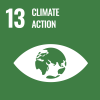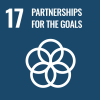Belet Weyne, 1 August 2023 – Somalia is grappling with the consequences of a prolonged drought, the longest in the country’s recent history. Since the end of 2021, the drought has pushed more than 1.5 million people out of their homes, caused a devastating food crisis, and killed thousands of livestock.
This year’s Gu rainy season, spanning from late March to June, was anticipated to bring some respite to millions struggling to survive the water scarcity crisis. But while the rains did offer relief to pastoralists by replenishing groundwater sources and regenerating vegetation, they also brought new challenges for communities. Due to the soil's inability to absorb the water after the prolonged drought, the long-awaited rains quickly transformed into devastating flash floods, some of which reached unprecedented magnitudes.
Since March this year, the floods have affected 468,000 people and displaced more than 419,000. The majority of those displaced lived in Belet Weyne, a town in the central Hirshabelle State of Somalia, where the Shabelle River burst its banks in early May.
This year’s El Niño phenomenon, which causes specific regional weather extremes, has heightened concerns. Climate experts predict further flooding that could exacerbate communities’ dire situation. The combined efforts of humanitarian organizations and local authorities are crucial in supporting communities to prepare and mitigate the potential impact of future natural hazards.
Written by Claudia Rosel and Muthoni Njenga / IOM Somalia

Belet Weyne in Hirshabelle State bore the brunt of the floods in early May 2023 when the Shabelle River broke its banks, leaving a trail of destruction and devastation. Two-thirds of the city was submerged, causing extensive damage to vital infrastructure.

Despite efforts to mitigate the floods, Belet Weyne’s existing channels and dams couldn’t withstand the overwhelming water levels and pressure.

The floods damaged businesses and the local market, exacerbating the vulnerabilities of families already impacted by the drought. Livestock and crops were lost, increasing people’s food insecurity.

The floods rendered roads impassable and submerged bridges, disrupting movement and isolating communities. Schools were forced to close, affecting over 25,000 children. People used tractors to access essential services and find safety.

Families were forced to flee their homes, seeking refuge on higher grounds and establishing informal settlements. As a result, people only had little access to clean water, sanitation, and basic services.


Zamzam Ali, a 60-year-old grandmother, recalls the terrifying night of the floods: “We were peacefully sleeping when a powerful rainstorm flooded our shelters. In the darkness, we felt helpless.” In the midst of the chaos, she salvaged only a few belongings, including a mat and jerry cans. One of her grandchildren almost lost his life in the floods.

Ramaas Mohamoud, a 37-year-old mother of four, shares her experience: “Our makeshift home was flooded one night. We had to quickly flee with our children and what little we could carry.” Ramaas recounts how they lost all their food and belongings. “My husband has gone to the city with his wheelbarrow to look for work. I hope he returns with something for us to eat.”

Prior to the onset of floods, IOM had launched a coordinated response in partnership with UNICEF, the World Food Programme (WFP), and local partners, known as the minimum response package (MRP). This initiative aimed to save lives and support newly displaced individuals affected by the drought, reaching 98,500 people in Baidoa, Banadir and Belet Weyne. The package included essential relief items such as water, hygiene kits, cash assistance, shelter materials, and nutrition supplements.

Zamzam, Ramaas, and their families received the minimum response package before the floods hit. IOM teams are now assisting flood-affected individuals and gathering data to inform the humanitarian response efforts and ensure aid goes to those who need it most.

So far, IOM has coordinated the rapid deployment of assistance to 8,000 families in Baardheere (3,000) and Belet Weyne (5,000), two of the cities most affected by the floods. Aid includes hygiene kits, water trucking, emergency shelter materials, and health and sanitation services.





